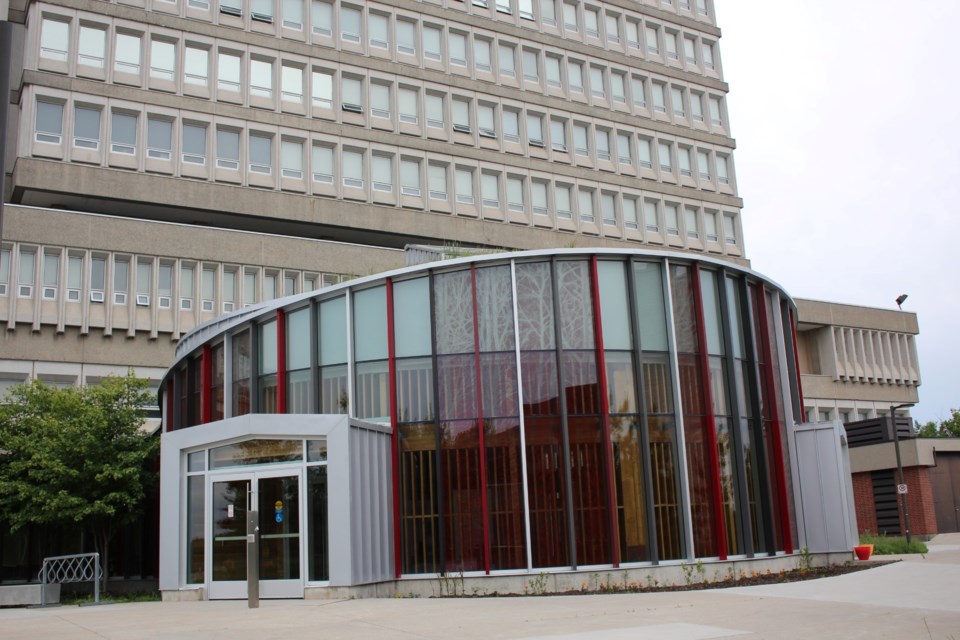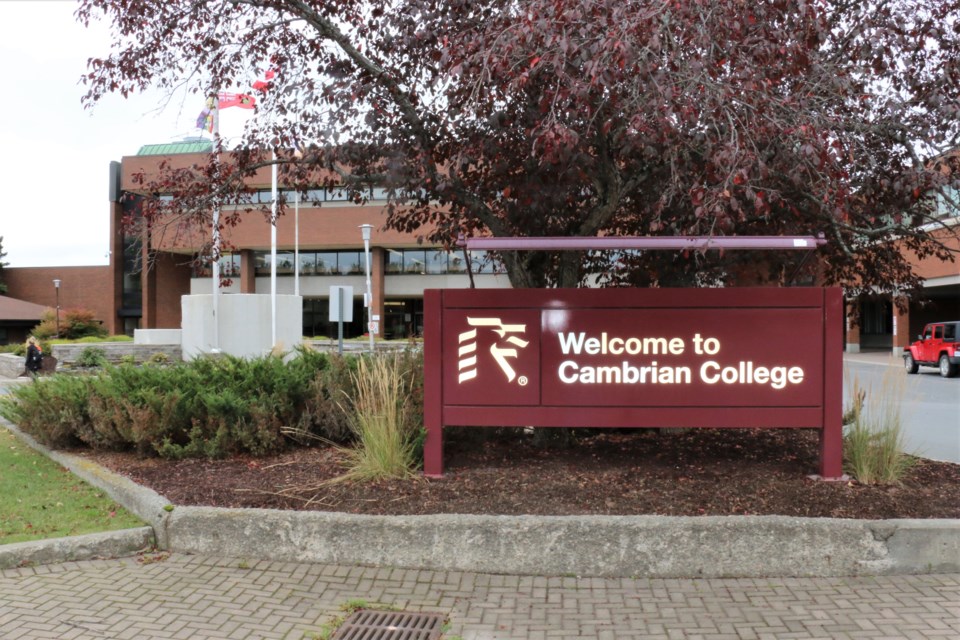Sudbury’s three post-secondary schools say they were treated fairly when it came to the allocation of a now limited number of foreign study permits.
In January, the federal government announced it is making several changes to stem the explosive growth of international students being brought into Canada by post-secondary institutions, which has caused issues that include pressure on housing.
The federal government said it will set an intake cap on international student study permit applications to stabilize new growth for a period of two years. Ontario student study permits were expected to go down by 50 per cent.
Post-secondary institutions had been waiting for the Ontario government to allocate study permit applications following the announcement of the feds’ new rules, something it did at the end of March.
Although its partnership with a private college to educate international students is winding down, meaning a $20- to $25-million hit on its finances, Cambrian College’s president says the college has been treated fairly.
“Overall, I think Cambrian came out in a good position,” said Kristine Morrissey. “I think we were treated fairly through the process.”
The province said it will allocate 96 per cent of permit applications to publicly assisted colleges and universities, with the remaining four per cent allotted to Ontario’s language schools, private universities and other institutions. Career colleges will not receive any applications.
International student permits cannot exceed the institution’s 2023 permit levels, and the ratio of international permits cannot exceed 55 per cent (exclusive of high-demand areas) of the institution’s 2023 first-year domestic enrolment.
This winter, Cambrian College had 3,200 international students studying in Sudbury, as well as just over 3,000 domestic students. It also had 6,200 international students studying at the GTA-area private college called Hanson Canada.
“If I think about Cambrian campus, as it relates … to the international students that come to Sudbury to attend our college here, we in the long term should be able to maintain our current international levels,” said Morrissey.
Cambrian was also given additional student permits related to high-priority labour market programs.
But “the jury’s out on whether or not we're going to be able to continue to attract international students to come to Canada as an international destination,” given the new rules, she said.
In terms of the Hanson partnership, “we’re seeing a 100-per-cent decline in the Cambrian students that would have attended those two campuses,” said Morrissey.
Following the federal announcement on international students in January, Cambrian was already anticipating that partnership coming to an end because these students would no longer be able to get post-graduation work permits.
There are still some students starting at Hanson in May, but after that point, “those students will complete their education at Hanson and no new students will be permitted into that partnership through the Cambrian avenue,” she said.
Cambrian College was initially anticipating a $40-million-per-year impact on its finances based on the assumption that the Hanson partnership has folded and Cambrian only has 50 per cent of the international students on its Sudbury campus it has now.
“Now that we've got our allocations, and we know that long term, we should be able to maintain the same level of international enrolment at our Sudbury campus, the biggest impact is really going to relate to the revenue that that Hanson partnership has brought to Cambrian and to our community,” Morrissey said. “So the level of reduction will be between $20 and 25 million.”
Cambrian told Sudbury.com this winter net revenues from Hanson this past fiscal year were approximately $17 million. The college achieved a net overall budget surplus of $18 million, “meaning we did not rely on Hanson to balance our budget,” said the statement from Cambrian.

Collège Boréal: ‘It's what we think was fair’
Over at Collège Boréal, president Dan Giroux said the Francophone college, with its main campus is in Greater Sudbury, will maintain its current number of international students, which is “good news.”
“Well, you're always doing the what-if scenarios, so it's what we think was fair,” said Giroux. “So we're happy with that.”
The provincial announcement also said French-language enrolment will also be prioritized in the allocation of spaces.
The college told us earlier this year that the school has 2,100 students at its campuses across the province, and 47 per cent are international students. The proportion of international students also sits at 47 per cent at its Sudbury campus.
Unlike Cambrian, Boréal does not have a partnership with a private GTA-area college, as it has its own campus in Toronto.

Laurentian University: ‘We fared quite well’
Laurentian University provost Brenda Brouwer said the university has also been allowed to maintain its current international student study application permits.
“The numbers, we can work with,” she said. “They align very well with our enrolment projections, and so we think that we'll be in good shape. It's not going to change what our projections are.”
Following the university’s 2021-22 insolvency, Laurentian made a big push to increase its international student population this current school year.
Brouwer said the university’s international student enrolment went up nine per cent in just a year — it was at eight per cent in 2022-23 and at 17 per cent in 2023-2024. The sector average for Ontario universities is 18 per cent international students.
Because Laurentian had increased its international student numbers so much in the past year, “we fared quite well” in terms of the number of permits, Brouwer said.
She said the majority of Laurentian’s international students are also at the graduate level, which are not impacted by the new caps imposed by the federal government.
“I mean, we've been planning this over the last year, or enrolment projections where we want to see ourselves in terms of international and domestic,” Brouwer said. “So we can work within the constraints that we have and the numbers that we have.”
Laurentian’s new president, Lynn Wells, echoed Brouwer’s comments in a report to the university’s senate on April 16.
“The experts here at Laurentian who have looked at the numbers feel that we're well positioned to continue with our international students enrolments,” Wells said. “Of course the caps that are brought into effect do not pertain to graduate students, only to undergraduate students. The majority of international students at Laurentian being at the graduate level, any potential negative impact is minimal. But we are of course continuing to track, and we will keep an eye on that situation.”
Heidi Ulrichsen is Sudbury.com’s assistant editor. She also covers education and the arts scene.
